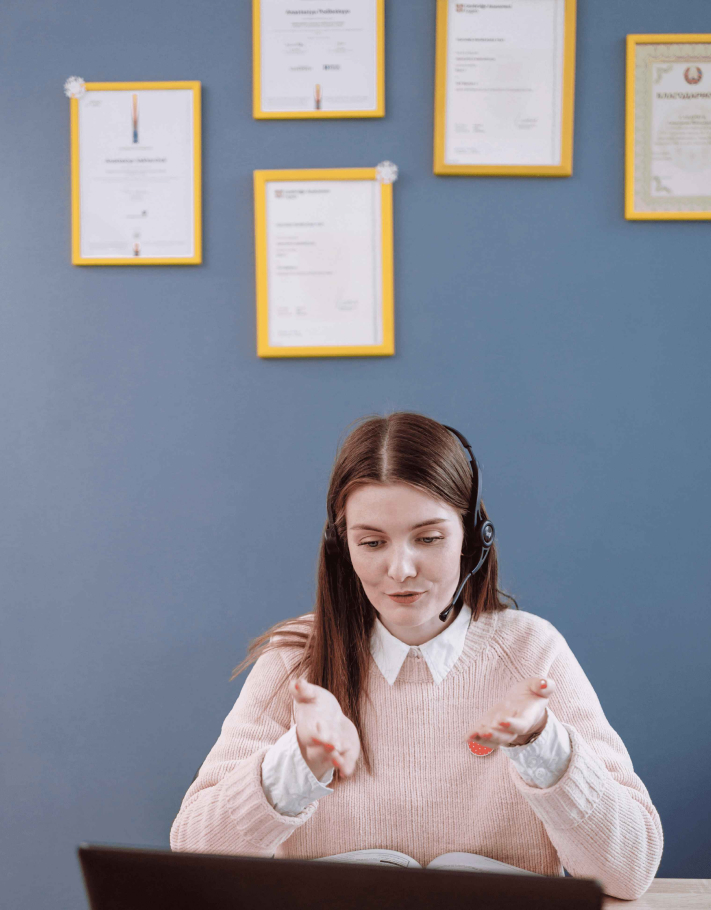All of our lessons are conducted in English only. Accordingly, all written work, assessment and presentations are in English also.
Linking School Learning to Home Knowledge and Experiences
Our teachers use a variety of activities to stimulate learning and boost recall. These include quizzes, discussion, practical experiments, virtual reality, homework and ‘student masters’, when the child demonstrates their mastery of a subject by explaining to the others in the class what they have just learned.
Tuition will also take advantage of a variety of learning tools, as well as teacher presentation such as virtual reality, e-books and writing tablets. We make extensive use of personalised software which enables children to investigate topics at their own pace, with diagnostics pointing them to their next step or referring them back to an area of knowledge which they need to work through again.
In addition to the four hours of focused learning each day, students will be expected to dedicate time to consolidate and practice what they have learned, work through graded exercises to embed that learning, and test their mastery using personalised assessments. They can choose when to undertake that additional work, as long as they meet the deadlines set by their teacher.

Ask at Home
One of the most important features of TGBS is the connection between what is presented at school and what knowledge already exists within the child’s household.
There are obvious links between certain aspects of the curriculum and parents’ employment or pastimes.
For example, when learning about electronics or robotics, the child of an engineer may be encouraged to talk about that with their parent. Similarly, if the family enjoy fishing or cooking or coding as a hobby, that knowledge can be brought back into school when relevant topics emerge in science or computing.
There are also links in History or Geography, when parents or grandparents may be able to give first-hand experience of events, countries or cultures which their children are studying in school.
And most profoundly, there will be core values and religious beliefs which children will be encouraged to discuss at home when they are looking at the different world faiths, political systems and moral perspectives held by people living in other countries. Of course, it is highly likely that one or more of their classmates will live in another country and may be living in a family with different views on these subjects to you.
The focus and purpose of Ask at Home activities is therefore to enable children to learn about their own family’s experiences, knowledge and views on certain topics and to bring what they learn into their lessons to share with others.
In this way, parents will know a great deal about what is being taught in school and will be able to enrich, discuss and direct their children accordingly. We hope it will also enrich every family’s dynamic, strengthen each child’s confidence, expand their knowledge, and develop a deeper understanding and acceptance of other people’s views without disregarding their own.



